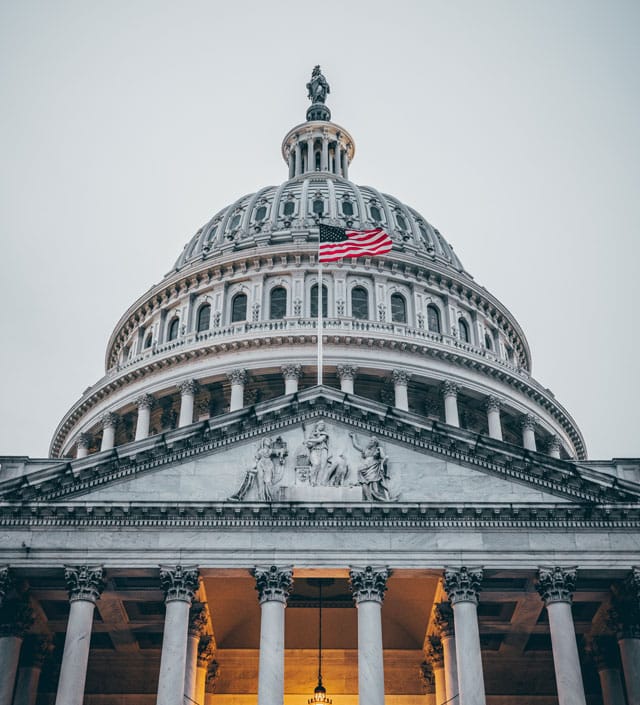Schwab analysts in mid-May expected the federal debt-ceiling to be raised without catastrophe.
Still, clients are concerned about potential deferred interest, even if for a short time, said Kathy Jones, chief fixed-income strategist at Schwab Center for Financial Research.
“We always get down to the wire with this” political debate in Congress, Jones said during the Schwab center’s monthly bond-market update to educate, not advise, traders and investors.
“Our view is that it gets resolved probably at the 11th hour, because the consequences of not resolving it are pretty negative,” Jones said.
Failing to avoid a default could cause a downgrade in America’s credit rating, a sell off of the dollar, a spike in short-term interest rates and a downturn in risk assets, she said.
Defaulting on debts would be bad not just for America, “but for the rest of the world and for the outlook for our economy,” she said.
“Treasuries are the liquidity provider for the world,” Jones said. “As silly as we can be in Washington, we probably aren’t quite that silly.”
On the radar
The Federal Reserve estimates about June 1 is when it could run out of ways to shuffle cash to cover the public debt, which exceeded the current limit earlier this year. A default would weigh most on the T-bill market, especially those that will mature around June 1, said Collin Martin, a director and fixed-income strategist at the Schwab center.
“If you own a Treasury bill that matures directly after the date the Treasury can no longer fund operations, then there’s a chance you might not be repaid on time,” he said. Investors would be paid when Congress does resolve its disputes.
The debt ceiling, which was created in Depression-era banking laws, was last adjusted in December 2021. It bumped the limit to $31.4 trillion, up from $28.9 trillion. Congress has permanently raised, temporarily extended, or revise the definition of the debt limit 78 times since 1960.
“If you absolutely need that money, then it might make sense to either invest in a T-bill that matures before then, or maybe a few months later to give Congress time for a long-term resolution,” Martin said.
“We think the risk of default is low, but if you absolutely need that money to fund a liability or something like that, then it could make sense to eliminate that risk now and move that risk down the road a little bit,” he said.
Managing volatility
Investors have faced volatile markets in the last couple years, particularly since the Federal Reserve started raising interest rates to tame high inflation during the Covid-19 pandemic. It began raising the Federal Funds Rate from near zero in March 2022, and since then has raised it nine more times — to 5.25% today. Some observers have criticized the Fed for waiting too long to start raising rates, while others say the pace of increases has been too fast. Inflation peaked at 9.1% in June 2022 and was down to 4.9% by April. However, the Fed has targeted a 2% inflation rate to keep prices stable.
“The interesting thing about this is that the market doesn’t necessarily agree with the Fed,” Jones said.
The market is looking at a slowing economy, she said of that divergence of expectations in the next six to 12 months. In contrast, the Fed relies on lagging indicators for its projections, she said.
The volatility in short-term rates “could cause clients heavily invested in cash to miss out on what’s down the road,” Jones said.
Schwab thinks Fed rate hikes have peaked, but even if there’s one more, intermediate bonds are projected to outperform short-term bonds, Jones said. That’s because coming down from the peak usually means economic activity and inflation are cooling, making longer investments attractive again as T-bill yields tick down, she said.
“But volatility, if invested in high-quality assets, shouldn’t be an issue,” Jones said.
Still, clients who need “parking spots” for investment money for less than a year should look at tried-and-true T-bills, Treasury bonds and certificates of deposit, Jones said.
“Staying in high-quality assets is the key,” Jones said. “For money that you absolutely have to access and can’t afford any loss on, you don’t want to be taking either credit risk or liquidity risk.”
More risk, more reward
Investors should now be locking in cash flows for the future, and should include corporate bonds with low risk of default in their portfolios, Martin said.
Yields across the curve for investment-grade corporate bonds now are 5% or above, he said.
Schwab is not recommending high-risk corporate bonds. “It’s still a bump ride ahead” for them, Martin said.
“We don’t want any of our clients or any of our investors getting stuck in short-term investments, and 18 months down the road when the Fed is cutting rates, you’re reinvesting proceeds in yields less than you could have locked in right now,” Martin said.
Jones agreed.
“History tells us there’s a good reason not to stay too locked in to short-term as the rate cycle plays out because the intermediate and long-term bonds are likely to outperform,” she said.
What does “high-quality” mean?
“We’re really talking about the core bonds: Treasuries, agencies, agency mortgage-backed securities, certificates of deposit, investment-grade rated corporate and municipal bonds — the highly rated investments bonds that we think should always make up the bulk of your portfolio,” Martin said. He suggests that anyone building an individual bond portfolio have at least 10 issuers to spread out their risk, in case something goes wrong with any one of them.
“You don’t want that to sink your whole bond portfolio,” he said.
Linda Hildebrand is a longtime newspaper editor and consumer reporter.







